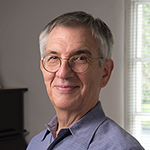 The fight against the Catholic Church cover-up of sexual abuse of children by priests is a story that has heroes as well as victims. Alex Gibney’s new documentary, “Mea Maxima Culpa: Silence in the House of God,” is playing on HBO throughout February.
The fight against the Catholic Church cover-up of sexual abuse of children by priests is a story that has heroes as well as victims. Alex Gibney’s new documentary, “Mea Maxima Culpa: Silence in the House of God,” is playing on HBO throughout February.
. . . Q&A with Alex Gibney at TheNation.com, HERE.
A Permanent Democratic Majority? KPFK 2/6
 LISTEN online HERE— SUBSCRIBE to iTunes podcast HERE
LISTEN online HERE— SUBSCRIBE to iTunes podcast HERE
Is the party of old white men doomed by demography? Will the young and the women and the people of color form a permanent ruling coalition? RICK PERLSTEIN says history suggests it’s not going to happen. He’s the author of the classics Before the Storm, on Goldwater, and Nixonland. He blogs for TheNation.com.
Also: For black history month, historian IRA BERLIN analyzes four epic migrations of African-Americans. Ira teaches at the University of Maryland; his book is The Making of African America: The Four Great Migrations is out now in paperback.
 Plus: New Orleans between the Superbowl and Mardi Gras: 150,000 tourists came last weekend for football; a million more are coming next weekend to binge-drink during Mardi Gras. The city lives off the restaurants and hotels. NONA WILLIS ARONWITZ was there last week, thinking about the possibility of organizing those industries to make these jobs better. Nona writes for The Nation and blogs at TheOtherNWA.com.
Plus: New Orleans between the Superbowl and Mardi Gras: 150,000 tourists came last weekend for football; a million more are coming next weekend to binge-drink during Mardi Gras. The city lives off the restaurants and hotels. NONA WILLIS ARONWITZ was there last week, thinking about the possibility of organizing those industries to make these jobs better. Nona writes for The Nation and blogs at TheOtherNWA.com.
Joe Kennedy, Cold War Critic: The Nation, 2/4
 As we head toward the 50th anniversary of the Kennedy assassination later this year, a new book has revealed the striking differences between JFK and his father, Joe Kennedy on the bedrock fact of American politics during that era: the Cold War. JFK’s declaration in his famous inaugural address is well known: the US should “pay any price, bear any burden” to fight communism everywhere in the world. Virtually unknown, until now, is the fact that a decade earlier his father had declared the entire Cold War “politically and morally” bankrupt.
As we head toward the 50th anniversary of the Kennedy assassination later this year, a new book has revealed the striking differences between JFK and his father, Joe Kennedy on the bedrock fact of American politics during that era: the Cold War. JFK’s declaration in his famous inaugural address is well known: the US should “pay any price, bear any burden” to fight communism everywhere in the world. Virtually unknown, until now, is the fact that a decade earlier his father had declared the entire Cold War “politically and morally” bankrupt.
. . . continued at TheNation.com, HERE
‘The Americans’: Soviet Spies on TV — The Nation 1/31
 The best thing about The Americans, the new spy show on FX, is that the Soviet spies are not Julius and Ethel Rosenberg. They are a different married couple—Russians, sent by the KGB from Moscow to Washington, DC. The show begins shortly after Reagan takes office. . . .
The best thing about The Americans, the new spy show on FX, is that the Soviet spies are not Julius and Ethel Rosenberg. They are a different married couple—Russians, sent by the KGB from Moscow to Washington, DC. The show begins shortly after Reagan takes office. . . .
. . . continued at TheNation.com HERE
Is ‘Pro-Choice’ Passé? Katha Pollitt on KPFK 1/30
 LISTEN online HERE— SUBSCRIBE to iTunes podcast HERE
LISTEN online HERE— SUBSCRIBE to iTunes podcast HERE
Forty years after Roe v. Wade, for the first time since polling began on this issue, more people are telling Gallup they are pro-life than say they are pro-choice. Does that mean we need to replace the term “pro-choice” with something else? If so, what? KATHA POLLITT comments; she’s a columnist for The Nation.
ALSO: Republicans and Randians – Ayn Rand, that is: JOHN NICHOLS talks about the strange ideas of our opposition party – especially those of Ron Johnson, the Wisconsin Republican who defeated Russ Feingold. John is Washington correspondent for The Nation.
 PLUS: Another day older and deeper in debt: historian STEVE FRASER talks about the politics of debt in America, from debtor’s prison to our present debtor nation. Steve is author of Wall Street: America’s Dream Palace. He wrote about debt for TomDispatch and Jacobin.
PLUS: Another day older and deeper in debt: historian STEVE FRASER talks about the politics of debt in America, from debtor’s prison to our present debtor nation. Steve is author of Wall Street: America’s Dream Palace. He wrote about debt for TomDispatch and Jacobin.
Harold Meyerson on Obama’s Majority: KPFK 1/23
 LISTEN online HERE— SUBSCRIBE to iTunes podcast HERE
LISTEN online HERE— SUBSCRIBE to iTunes podcast HERE
HAROLD MEYERSON on Obama’s majority—and the way he connected our struggles for equality today with the history of “Seneca Falls and Selma and Stonewall.” But can Obama’s majority win the coming fights not just for social equality but for economic reforms? Harold is editor at large of The American Prospect and columnist for the Washington Post op-ed page.
Plus: Leonard Cohen’s “Hallelujah” has become one of the emost widely recorded songs in music history—ALAN LIGHT explains how that happened. His new book is THE HOLY OR THE BROKEN: …The Unlikely Ascent of ‘Hallelujah’. Playlist: “Hallelujah” by Jeff Buckley, K.D. Lang, Bob Dylan, Adam Sandler, and Leonard Cohen Live in London.
 Also: The true story of a convicted murderer and the lawyers who fought for his freedom: BARRY SIEGEL, the Pulitzer-Prize winning journalist who heads the Literary Journalism program at UC Irvine, tells the story of Bill Macumber, who was released from prison in Arizona in November after spending 37 years in jail maintaining his innocence. Barry’s new book is MANIFEST INJUSTICE.
Also: The true story of a convicted murderer and the lawyers who fought for his freedom: BARRY SIEGEL, the Pulitzer-Prize winning journalist who heads the Literary Journalism program at UC Irvine, tells the story of Bill Macumber, who was released from prison in Arizona in November after spending 37 years in jail maintaining his innocence. Barry’s new book is MANIFEST INJUSTICE.
Barry Siegel book talk at UCI Law School noon Thurs 1/24: info HERE.
When Universities Sell Art: The Case of Columbia’s Rembrandt — The Nation 1/22
 A Rembrandt portrait that had been protected by Columbia student protesters in 1968 and later sold by Columbia for $1 million is back on the market this year, with a price tag of $47 million. The story of the 1658 painting, Man with Arms Akimbo, has many lessons, starting with the folly of universities selling art to make money. . . .
A Rembrandt portrait that had been protected by Columbia student protesters in 1968 and later sold by Columbia for $1 million is back on the market this year, with a price tag of $47 million. The story of the 1658 painting, Man with Arms Akimbo, has many lessons, starting with the folly of universities selling art to make money. . . .
. . . continued at TheNation.com HERE.
Life in the Ruins: Amy Wilentz on Haiti–KPFK 1/16
 LISTEN online HERE— SUBSCRIBE to iTunes podcast HERE
LISTEN online HERE— SUBSCRIBE to iTunes podcast HERE
Haiti Since the Earthquake: AMY WILENTZ reports on life in the ruins, and on the failures (and occasional successes) of relief and recovery efforts. Fact: most of the $379 million initially allocated by the US for aid to Haiti after the earthquake did not go to Haiti or Haitians; one-third went to the US military. Amy’s magnificent new book is FAREWELL FRED VOODOO: A Letter from Haiti. READ Amy’s new report from Haiti in The Nation HERE ;
SUPPORT Dr. Megan Coffee at TiKayHaiti.org.
Plus: TOM FRANK on the secret behind Steven Spielberg’s Lincoln: historian Doris Kearns Goodwyn—“uninspiring to the point of boredom.” So how did her work come to define our era? Tom wrote about Spielberg and Goodwyn for his Harper’s column this month, HERE.
 Also: the My Lai massacre was not an isolated incident; millions of innocent Vietnamese civilians were killed and wonded by American forces—“a My Lai a month” is what award-winning reporter NICK TURSE calls it. His decade of research in secret Pentagon archives and interviews with vets and Vietnamese are the basis of his important new book, KILL ANYTHING THAT MOVES: The Real American War in Vietnam.
Also: the My Lai massacre was not an isolated incident; millions of innocent Vietnamese civilians were killed and wonded by American forces—“a My Lai a month” is what award-winning reporter NICK TURSE calls it. His decade of research in secret Pentagon archives and interviews with vets and Vietnamese are the basis of his important new book, KILL ANYTHING THAT MOVES: The Real American War in Vietnam.
Eight Things I Miss about the Cold War: TomDispatch 1/15
 It couldn’t be a sadder thing to admit, given what happened in those years, but — given what’s happened in these years — who can doubt that the America of the 1950s and 1960s was, in some ways, simply a better place than the one we live in now? Fifty years ago, college was cheap, unions were strong, and we had no terrorism-industrial complex. . .
It couldn’t be a sadder thing to admit, given what happened in those years, but — given what’s happened in these years — who can doubt that the America of the 1950s and 1960s was, in some ways, simply a better place than the one we live in now? Fifty years ago, college was cheap, unions were strong, and we had no terrorism-industrial complex. . .
. . . continued at TomDispatch.com, HERE — also at TheNation.com HERE — or Mother Jones HERE – or Salon.com HERE — or Huffington Post HERE — or Daily Kos HERE — or Alternet HERE — or Truthdig HERE — or History News Network HERE — or Redit HERE – with 480 comments!
The Noir Forties: L.A. Review of Books, 1/15
 DETOUR is an ultra-low-budget 1946 film noir that packs an undeniable punch. “He went searching for love,” the Detour poster said, “but fate forced a detour” — to accidental murder. The film is one of Richard Lingeman’s touchstones in his new book The Noir Forties: The American People from Victory to Cold War. . . .
DETOUR is an ultra-low-budget 1946 film noir that packs an undeniable punch. “He went searching for love,” the Detour poster said, “but fate forced a detour” — to accidental murder. The film is one of Richard Lingeman’s touchstones in his new book The Noir Forties: The American People from Victory to Cold War. . . .
. . . continued at the L.A. Review of Books, HERE.

